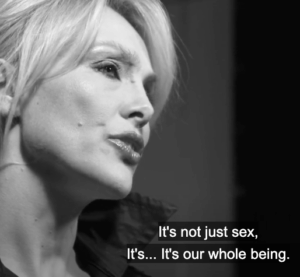Ah, uncertainty in relationships—what a charming little horror show. It’s awkward, nerve-wracking, and occasionally so absurd it could make for a cringe-worthy romantic comedy. Some of us fear it so much we’d rather move to a remote island with zero Wi-Fi. Others, knowingly or not, sprinkle uncertainty into every conversation like confetti at a surprise party. But here’s the big question: can we forgive ourselves and others for this maddening habit of leaving things “hanging”? And more importantly, can we learn to live with uncertainty without spiraling into a state of existential dread?
Uncertainty: Nemesis or Necessary Evil?
These days, uncertainty is practically baked into the recipe of modern communication. Whether it’s dating apps, texting etiquette, or the great enigma of “read receipts,” we’re constantly flailing in the murky waters of “Wait, what does this mean?”
- Did they like me on the date?
- Will they call back?
- Why is my message still marked as “Delivered” and not “Read”?
Here’s a classic example: a man and a woman meet on a dating app. Before they’ve even met in person, he’s pulling out all the stops—weekend trips to the mountains, Christmas dinner with his mum (yes, really). Then comes the first date. Pleasant, charming, mutual smiles all around. At the end, he says, “We absolutely must see each other tomorrow.”
Naturally, she believes him. So later that evening, she casually asks, “So, what time works for tomorrow?” Silence. Not a peep. Cue the echo of uncertainty bouncing around her brain, accompanied by its friends: doubt, frustration, and that persistent whisper of “What did I do wrong?”
Sound familiar? Oh, don’t worry. You’re not alone.
Why Does Uncertainty Send Us into a Tizzy?
Uncertainty, biologically speaking, is like poking your stress response with a stick. Our brains love predictability. It’s comforting, like knowing there’s cake in the fridge or that your favorite TV series won’t end on a cliffhanger. Predictability reduces anxiety, helps us make plans, and, most importantly, gives us that sweet, sweet illusion of control.
So, when someone leaves us “dangling,” our brain goes into overdrive, trying to fill in the blanks. And let’s be honest: most of the scenarios we imagine aren’t exactly rainbows and sunshine.
Why is this fear so intense? Because we’re social creatures. We crave connection, clarity, and at least a tiny clue about what’s going on. When communication abruptly halts, our brain yells, “Danger! Abandon ship!” even if the situation is more “forgot to reply” than “Titanic.”
The Art of Creating Uncertainty
Now, let’s zoom in on our enigmatic man from the story. Why was he so gung-ho about plans, only to disappear into the digital ether? Perhaps he genuinely wanted to meet again but panicked at his own enthusiasm. Maybe he’s commitment-averse. Or perhaps he’s just…well…a bit rubbish at communication.
His behavior is a prime example of creating uncertainty. But—and here’s the kicker—we all do this, don’t we? We ghost people, leave texts unanswered, or dodge difficult conversations. Sometimes, we’re the ones leaving others hanging, even if unintentionally.
Can We Forgive Uncertainty?
Forgiving someone for their radio silence—and forgiving ourselves for our own missteps—is no walk in the park. We demand clarity from others but often shy away from providing it ourselves. Are we ready to accept that uncertainty isn’t a villain but a natural part of being human?
Here’s a wild thought: uncertainty isn’t always bad. Sometimes, a pause or a bit of space helps us figure things out before we dive back in.
How to Cope with the Dreaded “Hanging” State
Fear not—there are ways to handle the limbo of uncertainty without losing your marbles:
- Step Away from the Drama
Stop reading between the lines of someone else’s behavior. Chances are, they haven’t read their own lines yet. - Focus on You
Instead of agonizing over “Why are they silent?”, try asking yourself, “What do I want?” It’s amazing how grounding this can be. - Ask, If You Dare
If you’re ready for the truth—whatever it is—ask a direct question. It’s far less torturous than endless guesswork. - Know Your Worth
Just because someone leaves you in limbo doesn’t mean you have to stay there. Respect yourself enough to set boundaries. - Learn to Forgive
Let’s face it: no one has all the answers, and everyone’s winging it. Forgive the occasional silence, and forgive yourself when you’re the one causing the confusion.
Uncertainty isn’t the enemy; it’s a messy, inevitable part of human relationships. We all create it, even without meaning to. The trick isn’t to banish it but to accept it as a chance to learn about ourselves and the people around us.
At the end of the day, embracing uncertainty helps us build trust—not just in others, but in ourselves. And who knows? Maybe the next time someone leaves you “hanging,” you’ll find yourself calmly thinking, “Ah, yes, here we go again.”
If this feels like your life right now, let’s figure it out together. After all, even uncertainty has something to teach us—if we’re brave enough to listen.




